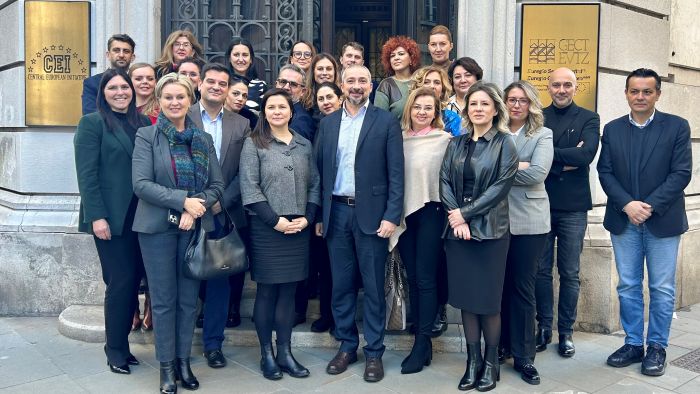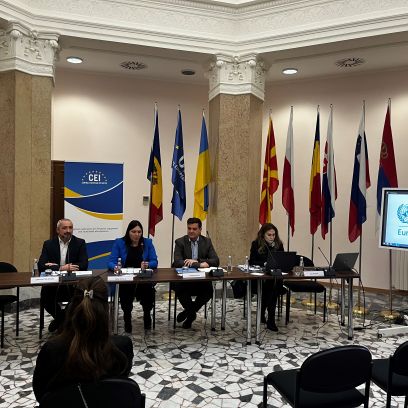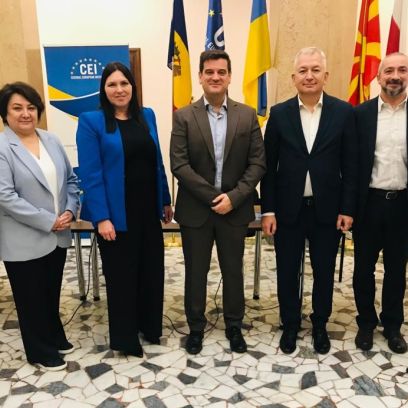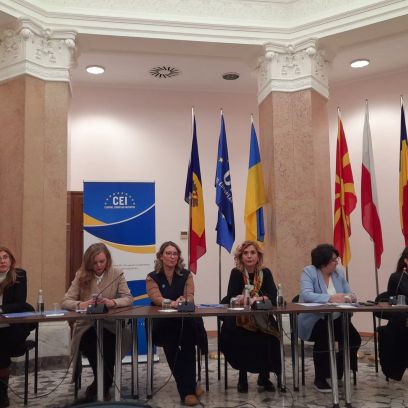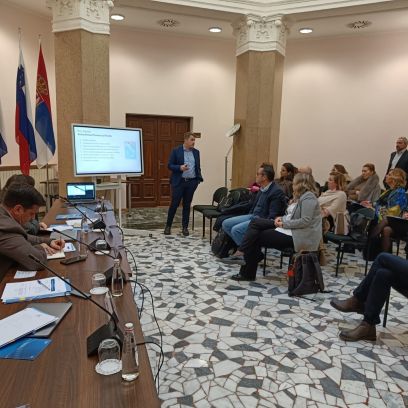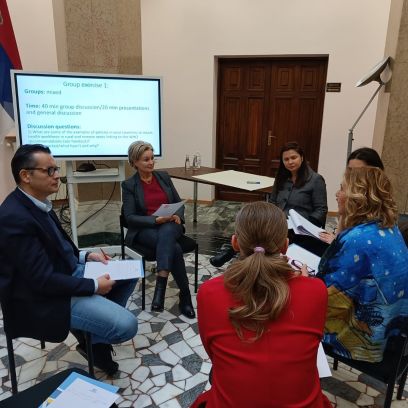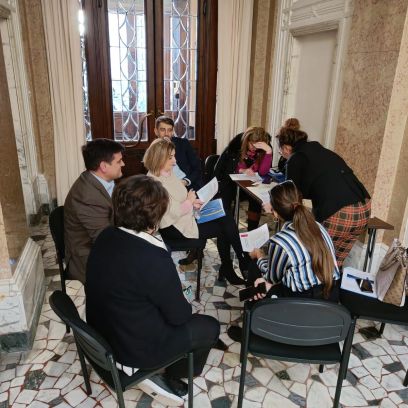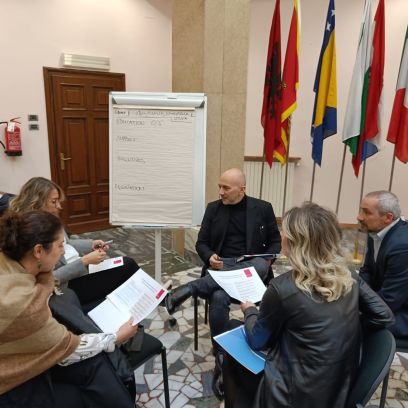The three-day event under the title “Strengthening Primary Health Care models and family medicine in the Western Balkans” co-organised with the World Health Organization for Europe (WHO), concluded yesterday in Trieste.
The activity is related to the WHO Roadmap for Health and Well-being in the Western Balkans (2021–2025) endorsed during the CEI summit in 2021, which aims at bridging the gap between the EU and the Western Balkans addressing emerging health challenges, accentuated by the COVID-19 pandemic. Over the course of three days (November 28-30), the workshop successfully focused on primary health care models, family medicine, and challenges related to the healthcare workforce. Key objectives - including the presentation of regional models, discussions on current challenges, and the identification of practical approaches - were accomplished.
Among the 30 participants were representatives from the health authorities of the Western Balkans, primary health experts, and officials from WHO Europe and the CEI. The synergistic collaboration between the two organisations made a significant contribution to promoting optimal health practices in the region. This marked the third edition of a series of technical events on primary health care organised in cooperation with WHO since 2020.
As underlined by CEI Deputy Secretary General Nina Kodelja,
We are delighted to have hosted this event in Trieste, dedicated to primary health in the Western Balkans. It is a demonstration of the established collaboration between the WHO Regional Office for Europe and the CEI. The CEI-WHO partnership is getting stronger, from the creation of a joint task force composed of key representatives of health institutions in response to the Covid-19 emergency, to specific activities such as this meeting. The workshop has identified approaches and policy recommendations for the future. And this event is relevant to the implementation of CEI's overall mission, which is to promote the European integration process.
This workshop not only provided an opportunity for growth and knowledge exchange but also marked a concrete step towards promoting stronger primary health care and effective management of the healthcare workforce in the Western Balkans.
The WHO representatives from the Unity of Workforce and Service Delivery, Tomas Zapata, and from the WHO European Center for Primary Health Care, Gian Matteo Apuzzo, noted the event was organised at the perfect time, following the WHO Regional Committee held in Astana (Kazakhstan) during which the resolution on healthcare and workforce received strong support from the WHO Member countries, opening new opportunities to shift from health workforce crisis to improvement, to make a real difference. They also stressed the contribution of the event to the implementation of the Roadmap for Health and Well-being.
Specifically, the programme featured interactive sessions, case study presentations, and roundtable discussions that stimulated collaboration and knowledge sharing. Crucial topics, such as the shortage of healthcare personnel and challenges related to retention especially in rural areas, were addressed to promote the sustainability of initiatives in the long term.
Experts from the Friuli-Venezia Giulia region and European experts illustrated their respective best practices and concrete solutions to ensure universal access to healthcare services. Participants also had the opportunity to take part in a field visit to the community hospital in Trieste on the last day of the workshop.
This event received financial support from the Friuli-Venezia Giulia Autonomous Region.
For more info: sinkovic@cei.int

